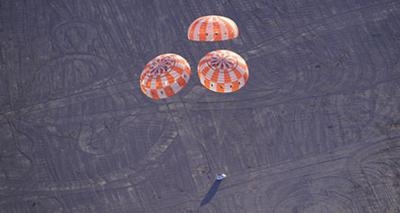Sat, Dec 22, 2012
Advertisement
More News
 ANN's Daily Aero-Term (10.01.25): Secondary Radar/Radar Beacon (ATCRBS)
ANN's Daily Aero-Term (10.01.25): Secondary Radar/Radar Beacon (ATCRBS)
Secondary Radar/Radar Beacon (ATCRBS) A radar system in which the object to be detected is fitted with cooperative equipment in the form of a radio receiver/transmitter (transponde>[...]
 ANN's Daily Aero-Linx (10.01.25)
ANN's Daily Aero-Linx (10.01.25)
Aero Linx: Royal Aeronautical Society (RAeS) As the only professional body dedicated to aerospace, aviation and space communities, we exist to further the advancement of aeronautic>[...]
 NTSB Final Report: Cessna 190
NTSB Final Report: Cessna 190
While Conducting A Wheel Landing The Tailwheel Equipped Airplane, It Bounced Twice... Analysis: The pilot reported that while conducting a wheel landing the tailwheel equipped airp>[...]
 Airborne Affordable Flyers 10.02.25: MOSAIC Start Date, AFE25 Tickets, ePulitzer
Airborne Affordable Flyers 10.02.25: MOSAIC Start Date, AFE25 Tickets, ePulitzer
Also: Bristell Receives Part 23, Sonex Highwing Webinar, AV-30-C Update, MOSAIC Consultancy The GA community is eagerly anticipating the date that marks the beginning of a new era >[...]
 ANN's Daily Aero-Term (10.02.25): Radar Contact Lost
ANN's Daily Aero-Term (10.02.25): Radar Contact Lost
Radar Contact Lost Used by ATC to inform a pilot that the surveillance data used to determine the aircraft's position is no longer being received, or is no longer reliable and rada>[...]
blog comments powered by Disqus




